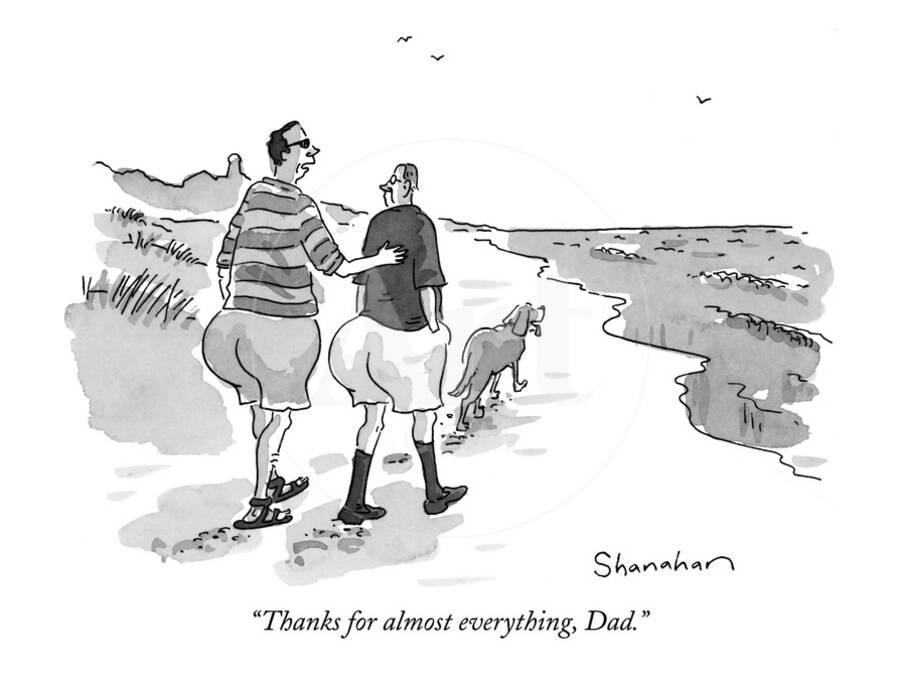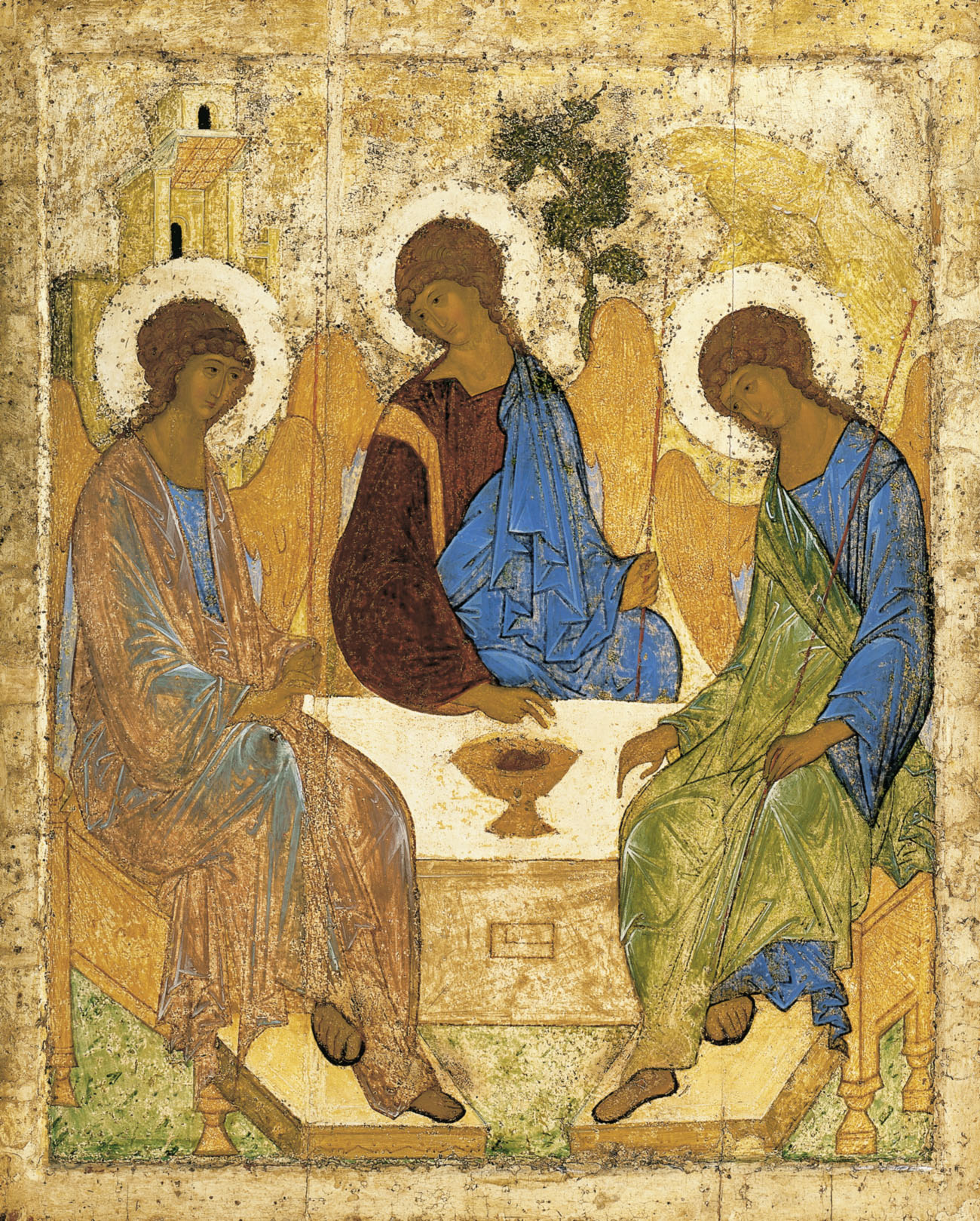What does it mean when your wife gives you this framed cartoon for Father’s Day?
 It means that your wife appreciates how you and your father have a close relationship. My dad and I often bond by going on bike rides and walking on the beach. This picture doesn’t, of course, mean that you and your father may just possibly have large rear-ends. No, your wife wouldn’t dare have a laugh at your expense. Wait a minute . . .
It means that your wife appreciates how you and your father have a close relationship. My dad and I often bond by going on bike rides and walking on the beach. This picture doesn’t, of course, mean that you and your father may just possibly have large rear-ends. No, your wife wouldn’t dare have a laugh at your expense. Wait a minute . . .
I love this cartoon because it’s honest about the messiness of any parent-child relationship. As both a father and a son, I know that the legacy of my genes and character will be a mixed-blessing for my four sons. One day, we’ll be on the beach, and one of my boys will turn to me and say: “Thanks for almost everything, Dad. Your prayer life and passion for the arts are inspiring to me, however I could do without your impatience and workaholism, among other faults.”
Father’s Day gives us an opportunity to look at parenthood theologically. One of the interesting aspects of the Christian faith is how we use the language of parenthood to describe God. We speak of a loving (and harsh) Father, an obedient (and rule-breaking) Son, and a comforting (and troubling) Spirit who binds the Father and Son together in mutuality.
We witness the selfless reciprocity of the healthiest familial relationships in Andrei Rublev’s vision of the Holy Trinity. This painting from the 15th-century is perhaps Russia’s most iconic artwork in all the meanings of that word.

Look closely at how the three figures bow to each other, their eyes shining with self-giving love. The Father (left) doesn’t overpower the others. His presence is generative rather than controlling. The Son (center) is the host at this feast, just as he is at the Eucharist. He welcomes the Father and Spirit to the table, saving us a seat.
The perspective with which Rublev renders this scene suggests that we, too, have been invited to take our place at the table. The Spirit appears relaxed, present to the others and assisting the others to be fully present to each other. Before us is a glimpse of heavenly Communion that we can experience in our own families when we empty ourselves of our false, ego-centered selves and pour out self-giving love into each other’s lives.
To speak of God in gendered terms, whether as Father or Mother (we can find both in Scripture), is, like any parental legacy, a mixed-blessing. Familial words for God are simultaneously vivid and limiting. Vivid in that we are human beings who are in relationship with a creative and life-giving God who desires that we have life and have it abundantly. This is God as ideal parent, as the author of our salvation.
Yet, even as we use words like “Father” to describe God, we come up against the limits of human language and concepts to describe God. Like a photo taken of the Grand Canyon, our words for God are, at best, approximations of a grandeur and presence that eludes our grasp.
This conundrum is described by the theologian Sallie McFague: “We imagine God as both mother and father, but we realize how inadequate these and other metaphors are to express the creative love of God . . . Nevertheless, we speak of this love in language that is familiar and dear to us, the language of mothers and fathers who give us life, from whom bodies we came, and upon whose care we depend.”
“The creative love of God.” McFague comprehends what it means to be a faithful parent. It’s my father, who could see that I was wandering off the right path during my early years of high school, and quietly worked behind the scenes to secure me a job at a local bike store, a job that would not only get me physically healthy by joining the shop’s cycling team, but would help me find joy in serving others. I worked at that shop for six summers during high school and college, and I learned as much there about life as in any classroom.

This Father’s Day, reach out to those who have worked behind the scenes and creatively loved you into the person you are today. Take a moment to say, “Thanks for almost everything, Dad.” And seek to be a generative steward of the people to whom God has entrusted you. Look upon them with the loving gaze of mutuality you see in Rublev’s icon and you will take your place at the banquet table that God has set for you.
Dave,
I enjoyed your sermon, for sure.
However, my butt isn’t really that large ??? Is it?
Those guys in the spandex look cool!!!
Peace.
Love, dad
LikeLike